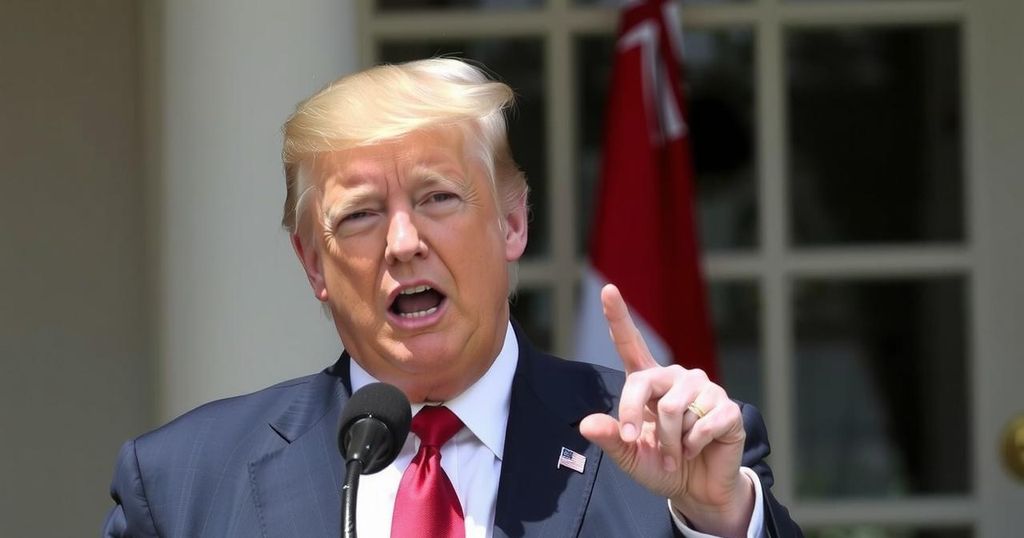Trump’s Non-Interventionist Stance on Syria Signals Policy Shift
President-elect Donald J. Trump is poised to face intricate challenges regarding Syria, a country embroiled in civil war since 2011. His preference for a non-interventionist foreign policy, alongside anti-interventionist sentiments from key advisors, raises questions about U.S. engagement in the region moving forward. Trump’s remarks reflect a notable skepticism of involvement in Syria, suggesting a significant shift in American foreign policy under his administration.
As President-elect Donald J. Trump prepares to take office, he is set to encounter significant challenges regarding Syria, a nation overshadowed by civil war since 2011. Trump’s foreign policy stance suggests a preference for a non-interventionist approach, reflecting his longstanding criticisms of U.S. involvement in Middle Eastern conflicts. His recent commentary underscores his view of Syria as a chaotic and desolate region, which he believes does not necessitate American engagement. This perspective may lead to friction among advisors and complicate U.S. strategy in the region, particularly given the complex dynamics involving rebel factions with extremist ties that currently control much of the country.
Moreover, Trump’s views are echoed by other members of his administration, including Vice President-elect J.D. Vance, who shares a skepticism of U.S. foreign interventions. The appointment of Tulsi Gabbard, a former congresswoman known for her anti-interventionist stance, as his director of national intelligence further illustrates Trump’s inclination against entanglement in Syria’s enduring conflict. As Trump navigates this multifaceted crisis, the effectiveness of his policies will be keenly scrutinized, revealing the intricate balance between U.S. interests and global humanitarian concerns.
Since the onset of the Syrian civil war in 2011, the region has seen significant upheaval, with a complex network of rebel factions and terrorist groups vying for control. The U.S. has historically oscillated between intervention and withdrawal, complicating its foreign policy objectives in the Middle East. Trump’s election signifies a potential shift away from traditional U.S. engagement, raising questions about the future of Syria and the ramifications for U.S. interests and allies in the region.
In summary, President-elect Donald J. Trump faces formidable decisions regarding U.S. involvement in Syria as he assumes office. His inclination towards a non-interventionist strategy, as articulated through his public statements and reinforced by his advisors, suggests a possible departure from previous U.S. approaches to foreign conflicts. As the situation in Syria continues to evolve, the implications of Trump’s policy choices will be critical to observe.
Original Source: www.nytimes.com




Post Comment